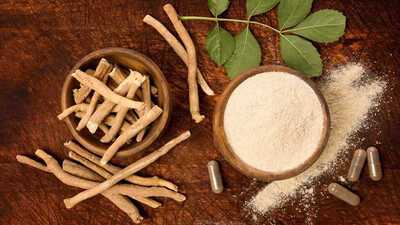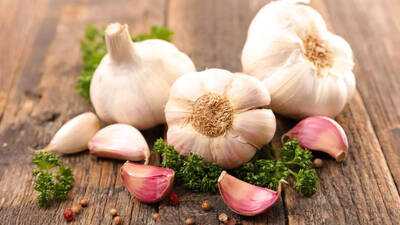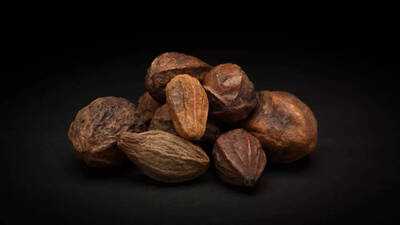Heart health is a cornerstone of overall wellbeing, and Ayurveda, India’s ancient system of medicine, offers several herbs that have been traditionally used to strengthen the heart and improve circulation. These natural remedies are valued not just for their therapeutic effects but also for promoting long-term cardiovascular wellness. Incorporating them into your routine may help reduce stress, lower cholesterol, and improve blood flow, all of which are vital for a healthy heart. Here are five Ayurvedic herbs renowned for their heart-protective properties.
5 Ayurvedic herbs for a stronger, healthier heart
Ashwagandha

Ashwagandha, often called Indian Ginseng, is a powerful adaptogen known for its stress-lowering benefits. Chronic stress can increase cortisol levels, which in turn may contribute to high blood pressure and cardiovascular strain. According to a study published in NIH, regular use of Ashwagandha has been shown to stabilise blood pressure and reduce stress hormone levels, supporting a healthier heart. Its antioxidant properties also help protect heart cells from damage caused by free radicals. Adding Ashwagandha in the form of powders, capsules, or teas can be a simple yet effective way to maintain heart resilience while promoting overall mental and physical wellbeing.
Garlic

Garlic is one of the most widely recognised herbs for heart health. Its compounds, particularly allicin, help improve blood circulation and maintain healthy blood pressure levels. Garlic is also known to prevent the buildup of plaque in arteries, reducing the risk of atherosclerosis and related cardiovascular conditions. Beyond its circulatory benefits, garlic supports immunity and has natural anti-inflammatory properties, making it a versatile herb for maintaining heart and overall health. Including fresh garlic in daily cooking or consuming it in supplement form can be an easy way to harness its heart-protective advantages.
Turmeric
Turmeric, the golden spice commonly used in Indian cuisine, is rich in curcumin, a potent antioxidant and anti-inflammatory compound. Chronic inflammation is a significant contributor to heart disease, and turmeric helps protect heart tissues by reducing inflammatory responses. Additionally, it improves blood flow and may prevent the formation of clots, supporting optimal cardiovascular function. Turmeric can be incorporated into meals, teas, or even taken as a supplement. Combining it with black pepper enhances curcumin absorption, maximising its benefits for the heart and overall circulation.
Arjuna: Strengthening heart muscles aturally

Arjuna, derived from the bark of the Arjun tree, is a traditional herb widely used in Ayurveda to support heart health. It helps improve cardiac muscle strength, boosts circulation, and may lower blood pressure and cholesterol levels. A study published in the Journal Pharmaceuticals have suggested that Arjuna can protect the heart from stress-related damage and improve overall cardiac function. Consuming Arjuna as a powdered decoction or in capsule form may help maintain a strong, healthy heart while promoting better circulation and reducing the risk of heart-related complications.
Terminalia chebula (Haritaki): Supporting heart function

Haritaki, known in Ayurveda as Terminalia Chebula, is another herb with potential cardiovascular benefits. It works as a natural antioxidant, protecting the heart from oxidative stress, which can damage blood vessels and increase the risk of heart disease. Haritaki is also known to support healthy digestion, which indirectly benefits heart health by reducing systemic inflammation. Consuming it as part of a herbal blend, in powder form, or as a supplement can help maintain cardiovascular balance and overall vitality.
Incorporating ayurvedic herbs into your routine
Integrating these herbs into your daily life doesn’t have to be complicated. Simple ways include:
While these herbs offer heart-supportive benefits, they work best alongside a balanced diet, regular exercise, stress management, and routine medical check-ups. Ayurveda emphasises holistic wellness, meaning that lifestyle habits combined with herbal support can have a lasting positive impact on heart health.
Ayurvedic herbs like Ashwagandha, Garlic, Turmeric, Arjuna, and Haritaki provide a natural, time-tested approach to supporting cardiovascular health. From reducing stress and inflammation to improving blood flow and strengthening the heart muscle, these herbs offer a variety of benefits that complement modern heart-healthy practices. Including them thoughtfully in your lifestyle can promote long-term heart wellbeing while enhancing overall vitality.
Disclaimer: This article is for general informational purposes only and is not a substitute for professional medical advice, diagnosis, or treatment. Always seek the guidance of a qualified healthcare provider regarding any medical condition or lifestyle change.
Also Read: Harvard-trained gastroenterologist reveals 3 foods that help reduce liver fat and support detox
5 Ayurvedic herbs for a stronger, healthier heart
Ashwagandha
Ashwagandha, often called Indian Ginseng, is a powerful adaptogen known for its stress-lowering benefits. Chronic stress can increase cortisol levels, which in turn may contribute to high blood pressure and cardiovascular strain. According to a study published in NIH, regular use of Ashwagandha has been shown to stabilise blood pressure and reduce stress hormone levels, supporting a healthier heart. Its antioxidant properties also help protect heart cells from damage caused by free radicals. Adding Ashwagandha in the form of powders, capsules, or teas can be a simple yet effective way to maintain heart resilience while promoting overall mental and physical wellbeing.
Garlic
Garlic is one of the most widely recognised herbs for heart health. Its compounds, particularly allicin, help improve blood circulation and maintain healthy blood pressure levels. Garlic is also known to prevent the buildup of plaque in arteries, reducing the risk of atherosclerosis and related cardiovascular conditions. Beyond its circulatory benefits, garlic supports immunity and has natural anti-inflammatory properties, making it a versatile herb for maintaining heart and overall health. Including fresh garlic in daily cooking or consuming it in supplement form can be an easy way to harness its heart-protective advantages.
Turmeric

Turmeric, the golden spice commonly used in Indian cuisine, is rich in curcumin, a potent antioxidant and anti-inflammatory compound. Chronic inflammation is a significant contributor to heart disease, and turmeric helps protect heart tissues by reducing inflammatory responses. Additionally, it improves blood flow and may prevent the formation of clots, supporting optimal cardiovascular function. Turmeric can be incorporated into meals, teas, or even taken as a supplement. Combining it with black pepper enhances curcumin absorption, maximising its benefits for the heart and overall circulation.
Arjuna: Strengthening heart muscles aturally

Arjuna, derived from the bark of the Arjun tree, is a traditional herb widely used in Ayurveda to support heart health. It helps improve cardiac muscle strength, boosts circulation, and may lower blood pressure and cholesterol levels. A study published in the Journal Pharmaceuticals have suggested that Arjuna can protect the heart from stress-related damage and improve overall cardiac function. Consuming Arjuna as a powdered decoction or in capsule form may help maintain a strong, healthy heart while promoting better circulation and reducing the risk of heart-related complications.
Terminalia chebula (Haritaki): Supporting heart function
Haritaki, known in Ayurveda as Terminalia Chebula, is another herb with potential cardiovascular benefits. It works as a natural antioxidant, protecting the heart from oxidative stress, which can damage blood vessels and increase the risk of heart disease. Haritaki is also known to support healthy digestion, which indirectly benefits heart health by reducing systemic inflammation. Consuming it as part of a herbal blend, in powder form, or as a supplement can help maintain cardiovascular balance and overall vitality.
Incorporating ayurvedic herbs into your routine
Integrating these herbs into your daily life doesn’t have to be complicated. Simple ways include:
- Adding garlic and turmeric to meals.
- Preparing Ashwagandha or Arjuna teas or using powdered supplements.
- Following dosage recommendations from a qualified Ayurvedic practitioner for herbs like Arjuna and Haritaki.
While these herbs offer heart-supportive benefits, they work best alongside a balanced diet, regular exercise, stress management, and routine medical check-ups. Ayurveda emphasises holistic wellness, meaning that lifestyle habits combined with herbal support can have a lasting positive impact on heart health.
Ayurvedic herbs like Ashwagandha, Garlic, Turmeric, Arjuna, and Haritaki provide a natural, time-tested approach to supporting cardiovascular health. From reducing stress and inflammation to improving blood flow and strengthening the heart muscle, these herbs offer a variety of benefits that complement modern heart-healthy practices. Including them thoughtfully in your lifestyle can promote long-term heart wellbeing while enhancing overall vitality.
Disclaimer: This article is for general informational purposes only and is not a substitute for professional medical advice, diagnosis, or treatment. Always seek the guidance of a qualified healthcare provider regarding any medical condition or lifestyle change.
Also Read: Harvard-trained gastroenterologist reveals 3 foods that help reduce liver fat and support detox
You may also like

'Decision made by Netanyahu': Trump distances himself from Qatar attack; claims strike ordered by Israel

Majorca panic as new kind of protestors cause chaos in hotels - not overtourism

Marc Guehi's three-word response after putting Liverpool transfer saga behind him

"It has lost confidence after repeated failures": Piyush Goyal slams Congress after CP Radhakrishnan wins VP elections

Nigel Farage's partner's company that sells his gin is struck off owing thousands






